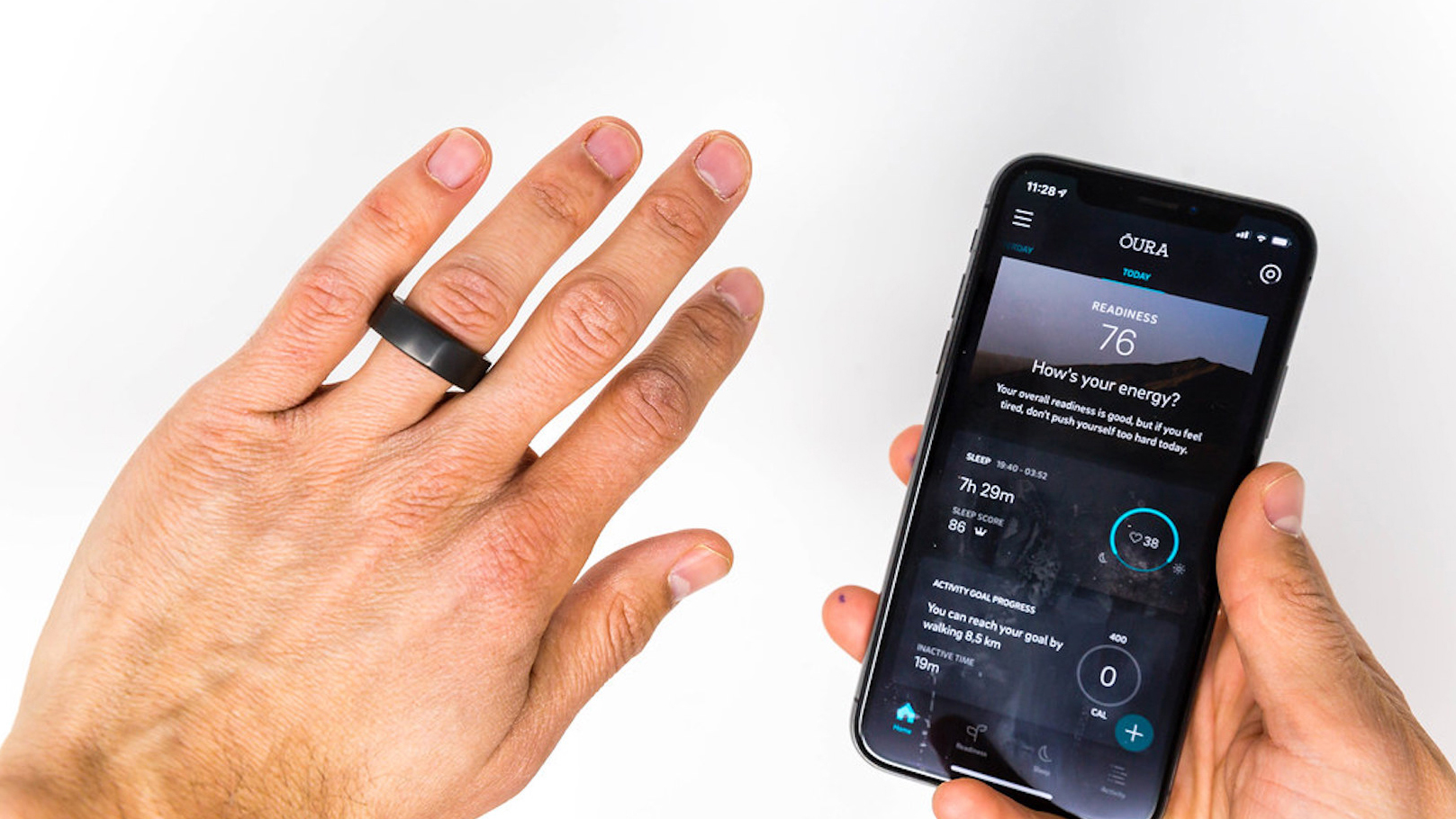 A smart ring is one type of wearable technology that can monitor health in real-time.
A smart ring is one type of wearable technology that can monitor health in real-time.
Tiny health-monitoring devices can tell us how many steps we’ve taken or how many calories we’ve consumed. Researchers are developing the same kind of technology to help in the fight against COVID-19.
Researchers hope to eventually make a wearable technology that can detect the coronavirus. But they admit that development is far in the future.
What is available — right now — are devices that can let you know about your immediate condition and tell you whether sickness might be around the corner. Wearable technology help users detect trends. If your average body temperature takes a sudden jump, for example, it could be an early warning sign of a coronavirus symptom.
University of Arizona student Hailey Swanson has tested the BioStamp. It’s a postage stamp-sized device that sticks to your arm, shoulder or leg and collects data about your vital signs.
"I have worn the stamps for many hours and I honestly don't realize I'm wearing them," she said. "It was definitely really impressive and inspiring to see that this little device could record so much data and have so much potential to digitize medicine."
Information from the BioStamp can be transmitted to a cell phone or a tablet. It can then be viewed by the wearer, who can send the data to a physician.
According to UA bioengineering researcher Marv Slepian, such devices are not meant to determine if you have COVID-19. “This is not to make the diagnosis," he notes. "This is to augment the diagnosis.”
Slepian says information gleaned from wearable technology can help a doctor get a head start on a potential visit.
“If you measured your breathing rate, if you took your temperature, took your blood pressure and checked your pulse, you’re doing half the things we do in a health care encounter,” said Slepian.
The latest in wearable health care technology could also be valuable for patients who are recovering from COVID-19 at home and vital for improving telehealth appointments.
A device that’s already on the consumer market is a data-collecting ring. The NBA is recommending that its professional athletes use it during the league’s projected restart this month.
Internet security advocates worry about how the data from wearable devices is stored and distributed. Others are worried about how the information will be kept private.
Slepian says these issues are being investigated worldwide, and emphasizes that the best defense against the coronavirus remains taking every precaution to avoid infection.
“We will develop a vaccine and we will develop better therapies, but you don’t want to get this if you don’t have to get it, and you don’t have to get it if you adhere to the guidelines," he said.

By submitting your comments, you hereby give AZPM the right to post your comments and potentially use them in any other form of media operated by this institution.